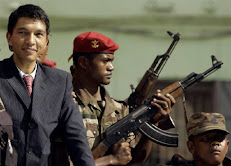The Price of Justice
The ICC issued its much anticipated arrest warrant for Sudanese President Omar al-Bashir last Wednesday, charging him with war crimes and crimes against humanity in the death of 300,000 civilians in Darfur. The Sudanese government’s response was predictable: casting blame on the Western establishment for trying to destabilize Sudan.
The International Criminal Court, according to Sudan’s UN Ambassador, was merely a stooge for the neo-imperialist troika of America, Britain, and France. The familiar echoes of US hegemonic domination, British nostalgia for empire, and French desires for the influence of yore, did little to disguise the fact that the warrant was entirely just. The evidence accrued by the Court’s Chief Prosecutor clearly demonstrates that Bashir recruited Janjaweed militias to terrorize and pillage the Darfuri population.
Unfortunately, the price of justice as it turns out is high indeed. The subsequent expulsion of 13 NGO’s from Darfur in retaliation for the ruling, has gutted the main providers of aid and assistance to Darfur. UN Ambassador Susan Rice has referred to this as “genocide by other means.”
An excerpt from Nicholas Kristof’s excellent piece on Sunday summed it up well:
More than one million people depend directly on the expelled aid groups for health care, food and water. I’ve been in these camps, so let me offer an educated guess about what will unfold if this expulsion stands.
The biggest immediate threat isn’t starvation, because that takes time. Rather, the first crises will be disease and water shortages, particularly in West Darfur.
The camps will quickly run out of clean water, because generator-operated pumps bring the water to the surface from wells and boreholes. Fuel supplies to operate the pumps may last a couple of weeks, and then the water disappears.
Health clinics have already closed, and diarrhea is spreading in Zam Zam camp and meningitis in Kalma camp. These are huge camps — Kalma has perhaps 90,000 people — and diseases can spread rapidly. Children will be the first to die.
It is important to note that the people of Darfur support the ICC, according to Kristof at least. I wonder however, just how long their support will last if the situation grows as dire as his article suggests.
Sadly, this won’t be the first time helpless people suffer for the cause of international justice. I refer to the misery incurred by the people of Iraq for over a decade while the world exacted legal retribution on Saddam Hussein.
Following the Iraqi invasion of Kuwait in 1990, the international community was determined to punish Saddam Hussein’s regime by forcing withdrawal, payment of reparations, and disclosing/destroying weapons of mass destruction. The UN Security Council authorized a wide-ranging and near total sanctions regime to this effect.
Considered the most comprehensive sanctions in human history, the embargo on Iraq had disastrous humanitarian consequences. Conservative estimates placed the death toll at 170,000, with higher estimates tending towards 1.7 million. Madeleine Albright’s infamous interview on 60 Minutes when she declared, “we think the price was worth it,” epitomized the callous disregard for human suffering due to sanctions. We must consider if the price will be worth it this time, should Sudan bring further suffering on Darfur as a result of this ruling.
The comparison between Iraqi sanctions and the ICC ruling confronts a moral quandary inherent in the pursuit of justice, as we understand it. In both cases, sound moral arguments could be made (less so in the former) for the international community’s policy towards homicidal regimes. But it must be asked, are we committing incidental manslaughter in the process?
Tuesday, March 10, 2009
Subscribe to:
Post Comments (Atom)











































No comments:
Post a Comment